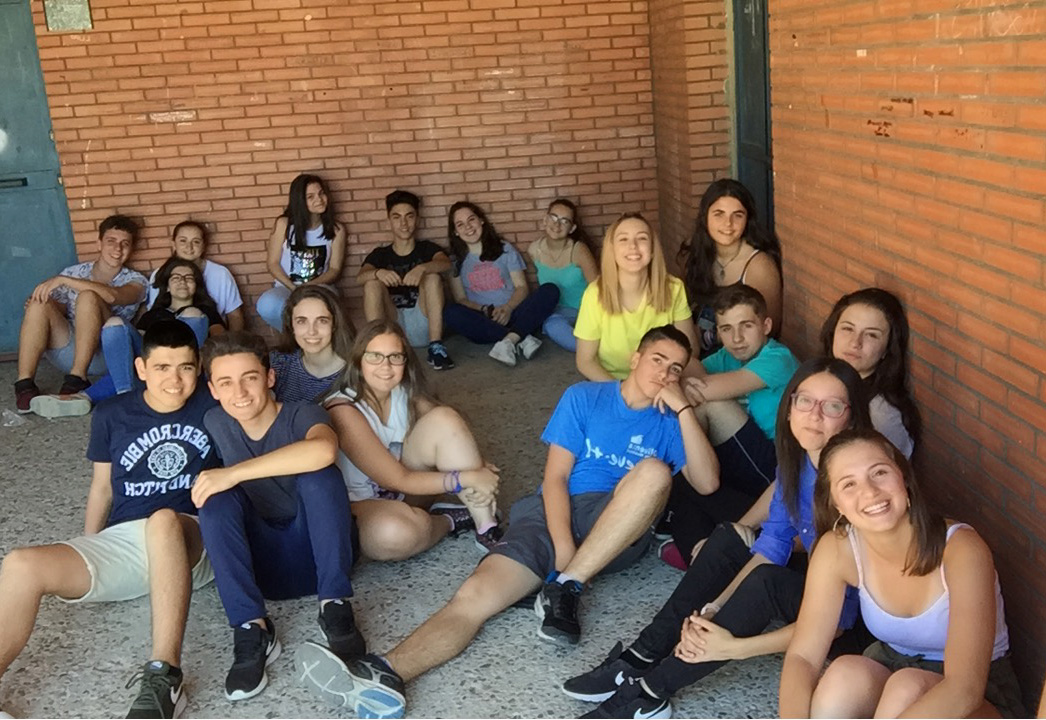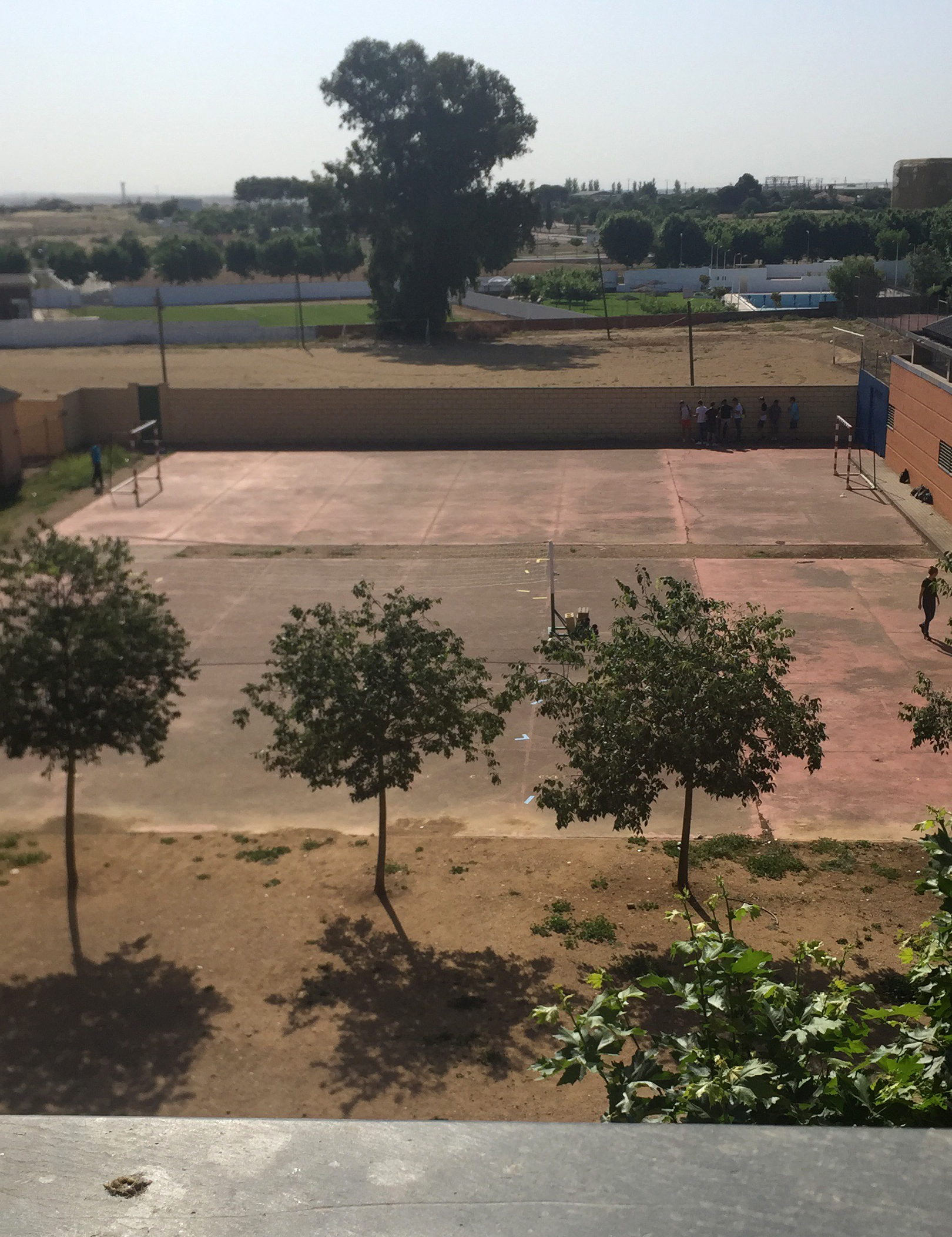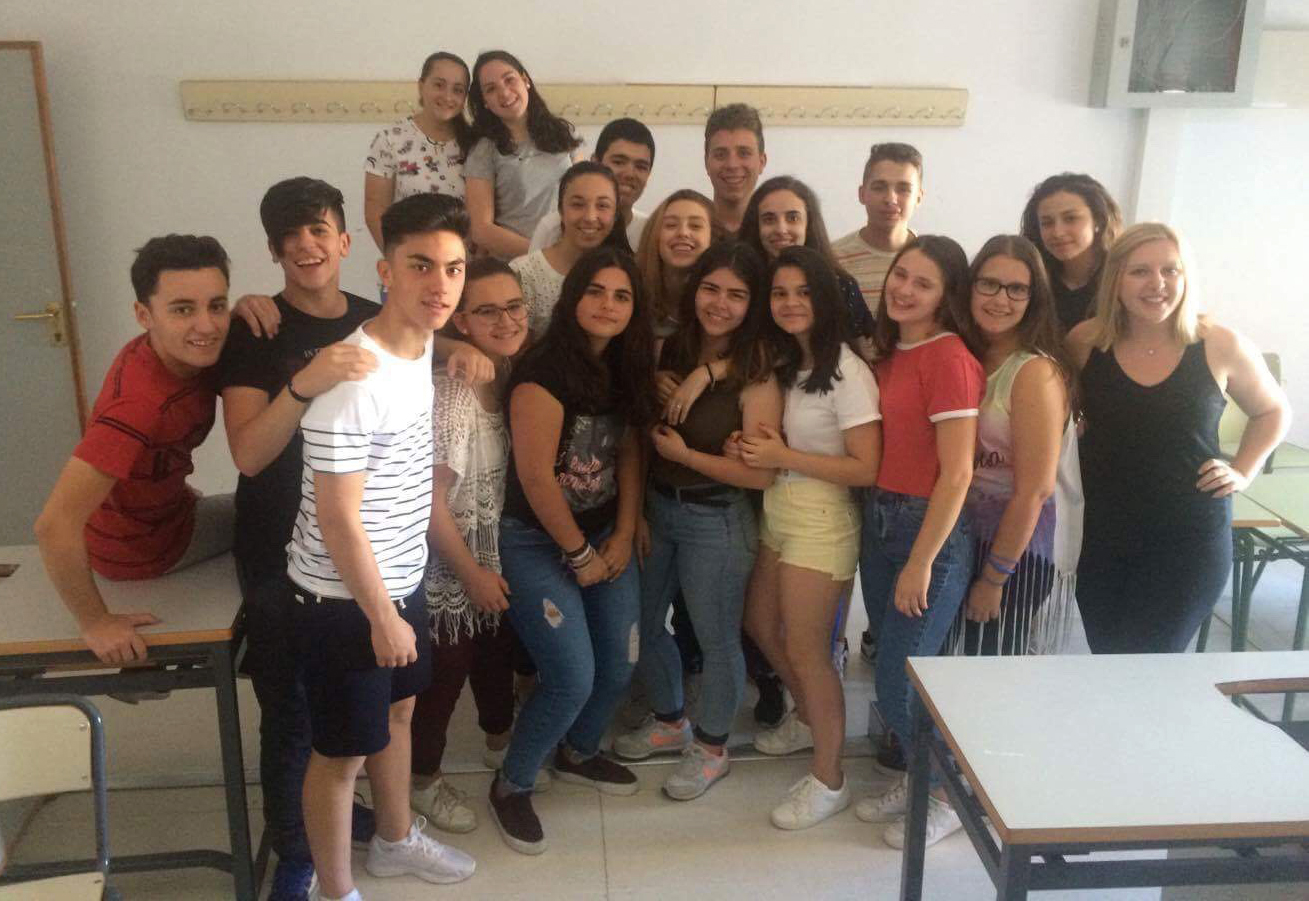High school in Spain is very different from the United States. Students have the responsibility of learning the information on their own. Of course, the teacher instructs and is there for questions and to provide the information, but the students are responsible for taking that information and learning it.
Study Time
Rather than having a lot of homework and school projects, we have exams. Students are expected to study a lot which was really hard for me at the beginning because I didn’t understand the language, and I wasn’t used to studying so extensively.
High school here is taken very seriously. How you do in high school determines what universities you can or cannot get into. Here in Spain, public universities are free or at a very low cost. But, you can only get into the public universities if you have good grades, so everyone works really hard to accomplish that.

School Schedule
The school schedule is also different. We have six classes a day, two in the morning and a break, then two more and a break, and then two more before we go home. We have a different schedule each day, which I really like because it changes things up.
As an exchange student learning in a different language, school has been really hard for me. But, it has also been a really good way to learn the language, and a great life experience to have. Most of my teachers understand that I’m going to have difficulties in class and work with me so I’m not totally lost. But, sometimes there are expectations that I can’t live up to, and that can be difficult.

Here are a fews tips to succeed in the classroom when studying abroad in Spain:
1. Take a dictionary to school.
Taking a dictionary to school really helped me at first. I came to Spain with two years of Spanish classes, which was a good start to have, but could never have prepared me enough for actually hearing the way people speak. They say Extremadura has one of the heaviest accents in Spain, which made it even harder at first to understand what people were saying to me. But, having a dictionary really helped me out.
Learning a new language is a long process and takes time, even after eight months I can’t say I know everything. I have so much more to learn, and I won’t go home completely fluent, but I will go home knowing the language mas o menos.
2. Ask questions.
Asking questions is key because it shows the teacher you’re interested. Plus, how will you learn if you don’t ask? For the most part, my teachers have been 100% willing to help me out. At the beginning of the year, my language arts teacher gave me Spanish worksheets instead of whatever we were doing in class as a way to help me learn the language.
3. Translate the material.
Translate the material, not only will it help you learn the language, but it will give you a deeper understanding of the material so you can actually pass the exams. For me, I’ve found that exams here are a lot about memorizing material word-for-word. So, if I translate it, I can have a better chance of remembering what I have to write.
4. Attend after-school lessons.
Don’t be afraid to go to after school classes. I’ve been going to after school tutoring lessons with my host-sister, and they’ve been so helpful. It’s hard to get all of the information you need just by listening to the teacher. Going to the tutoring lessons has helped me SO MUCH because it’s more one-on-one. They aren’t too expensive and usually they will help you with more than one school subject.

Go with an Open Mind
My advice is to go in with an open mind and be ready to face the challenge. This is a learning experience and a chance to push yourself to your limits. I was so nervous my first few days of school, but everyone was very kind and accepting. I have learned more than I ever thought I could over these past eight months inside and outside of school. I have also met some absolutely amazing people! If you want to study abroad, and feel you’re up for the challenge, don’t hold back! Do it!
What’s holding you back? Contact us to study abroad!

Leave a Reply